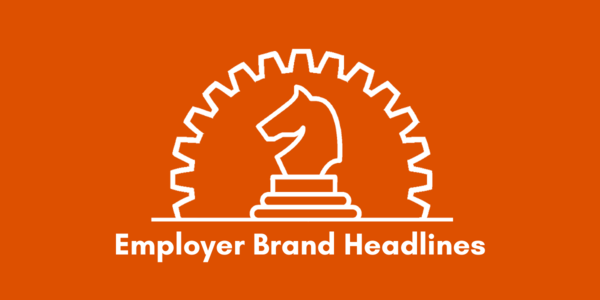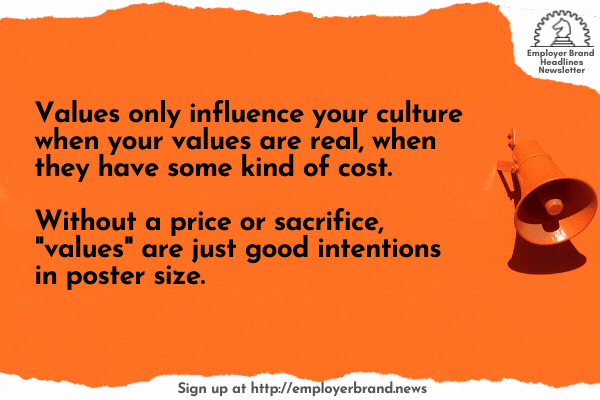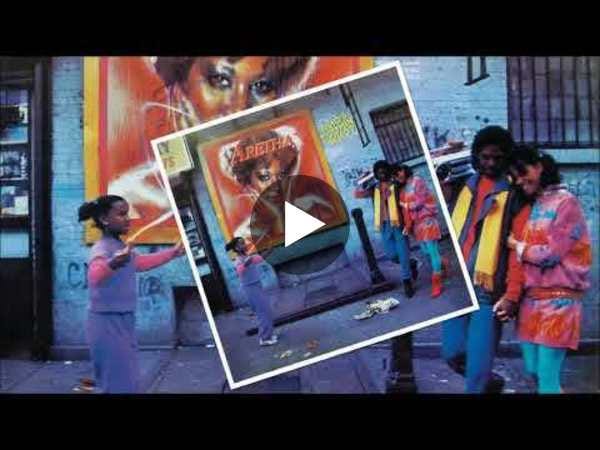⚡ Employer Brand Headlines: The "Who's Zooming Who?" Edition (#124)
My mission: move the conversation around employer brand forward.

Employer Brand Headlines, brought to you by James Ellis
In this issue
Yet another culture article…
Predictions season begins!
Anthropology!?
Purpose?!
The big idea
I posted a little thing on LinkedIn about culture (culture is a function of everyone in the room: add a person or lose a person and the culture changes).
Not surprisingly, comments and DMs told me how little we all agree on what we mean when we talk about culture. (Not that it stops anyone from talking about it, mind you). Some people confuse culture with values. Some thing culture is determined by leadership. Some people think culture is “the sum of al activities.”
I disagree with all those ideas (to various degrees), so let me try and set a definition that isn’t just a cop-out (i.e. “culture is what it is!”) but something that suggests the opportunities for people to make an impact on it.
So first, I define culture as “the way decisions get made and things get done when there is no rule, authority or leader in the vicinity.”
Example: your company has a rule that you don’t fly first class. That leaves a lot of room for interpretation. Do you book the cheapest flight you can or do you get the mid-tier ticket with a little flexibility and legroom? Culture answers that question.
Example: You spot an issue with the product as it is going into production. A few hundred have already been produced and are waiting to be shipping. The issue is small and won’t impact every customer. Do you speak up and stop production? Do you mention it and suggest a fix for future versions? Do you keep your head down and pretend you didn’t see it. Culture determines the action.
Example: There’s a disagreement in a meeting room. Someone raises their voice but quickly pulls back. Do you ignore it? Do you take them aside later and say, “that’s not cool”? Do you tell their boss? Do you start a rumor that they are a hot head? Culture.
Culture is based on all the people in a given space. In all the above examples, the people in the room will likely define the action (or non-action). But so will the actions modeled by leadership. If you saw the CEO stop the production line (despite the cost) because the product wasn’t right, you’re more likely to do so. If the CFO routinely yells at staff, you might ignore the co-worker who yells, thinking “this is how it is here.”
Culture is also influenced by policies. If HR/Finance rewrite the flight rule to say “staff must buy the cheapest seats available unless it radically lengthens the trip,” well, the culture is being shaped there.
Finally, values can influence culture. If your leadership/company has said that you value empathy, yelling won’t be cool. But before we finish this idea I want to suggest that not all values are the same. Some values are poster fodder: things we say to make ourselves feel good, turn into a poster and then ignore. Values only influence your culture when your values are real, when they come at some kind of cost. Without a sacrifice, values are copy-written good intentions.
Culture doesn’t just happen. It isn’t rain that falls from the sky. It sprouts from the soil you’ve cultivates. It can be shaped with intention, but not easily or for free. What you feed it is what you get, so take a look at all the things you are feeding it.

Headlines!
Predictions for 2022: Everything Is About To Change
I mean… this is all true. Just remember: change isn’t something that happens to you. It is something you can make happen. (h/t to the one and only Hung Lee’s Recruiting Brainfood)
Why It’s So Hard to Keep and Recruit Employees Right Now
Here’s my list:
Every company sounds and says the same things
Companies are spending more time trying to sound like they care than actually caring
Companies try to hire everyone the same instead of personalizing/segmenting the experience
Entering a Market Where There’s Little Demand for Your Product
First, you have to admit to yourself that no one actually wants the job you’re selling. If they did, they’d have ALREADY APPLIED! So, for everything else, assume there is ZERO demand for your product. We good? Still buddies? Cool. Now go read this article on what to do next.
Better management through anthropology
Whether you know it or not, pretty much everything you hate about work is because of William Taylor. The world has changed a little in the last 120 years since his ideas shaped the industrial revolution, so maybe we need to take another approach. My first instinct is to get serious in systems thinking, but anthropology wouldn’t be a bad idea, either.
www.strategy-business.com • Share
What experts are predicting about work in 2022
A little “rose colored” for my taste, but I like the idea that continued focus on the “creator economy” might lead to employees being seen less as “cogs who do what I tell them to” and more as “creator (artists) who build things of value.”
What do billions of search queries reveal about 2021?
What do people want in work? Google data/trends for the win.
www.thinkwithgoogle.com • Share
Business Purpose vs Brand Purpose: Why the Difference Matters
Useful clarity around one of the used (and misused) terms in business: purpose.
Empathy and flexibility: The future of online retail
I just wonder if the retail experience can be more flexible and empathic, why can’t the candidate experience? The same question could be asked about making the experience more simple.
The Art Of Brand Strategy And How To Get It Right
While consumer brand focused, there are a lot of lessons to steal here. My favorite: use data to find tensions and then build tactics around that (instead of implementing a cool tactic and then figuring out how to measure it). I also love the reminder that knowing what your competitors are talking about is a HUGE opportunity for you to differentiate.
www.thebrandberries.com • Share
3 Effective Tips to Augment Your Talent Acquisition Strategy in 2022
Tiny rant: Can we be done with articles telling us that we need more referrals and better DEI to hire? Is there anyone who still needs to hear it?
Inside the fortune cookie
“If you can’t surprise yourself, how can you expect to surprise anyone else?” - Christopher Walken
Thanks, everyone!
There are now more than 1,200 links in the link archive. Enjoy!
Finally, if you have a question, just reply to this email and it comes directly to me.
Cheers and thanks!
-James Ellis (LinkedIn | Twitter | Podcast | Articles)
Where the subject line came from:

Aretha Franklin - Who's Zoomin' Who
Someday, someone will do a deep dive study as to why all these “washed up” 60’s acts had big hits in the 80’s (Tina Turner, Ronnie Spector, Eric Clapton, Chaka Khan, Steve Winwood, etc).

By James Ellis, Employer Brand Nerd
In a sea of content, how do you stay up to date on employer branding news? How do you know what's worth reading and what's just a waste of time?
So glad you asked! Here's a weekly digest of the best content to make you smarter about employer branding, curated by James Ellis.
In order to unsubscribe, click here.
If you were forwarded this newsletter and you like it, you can subscribe here.
Powered by Revue
James Ellis, 421 W Melrose, Chicago, IL 60657




